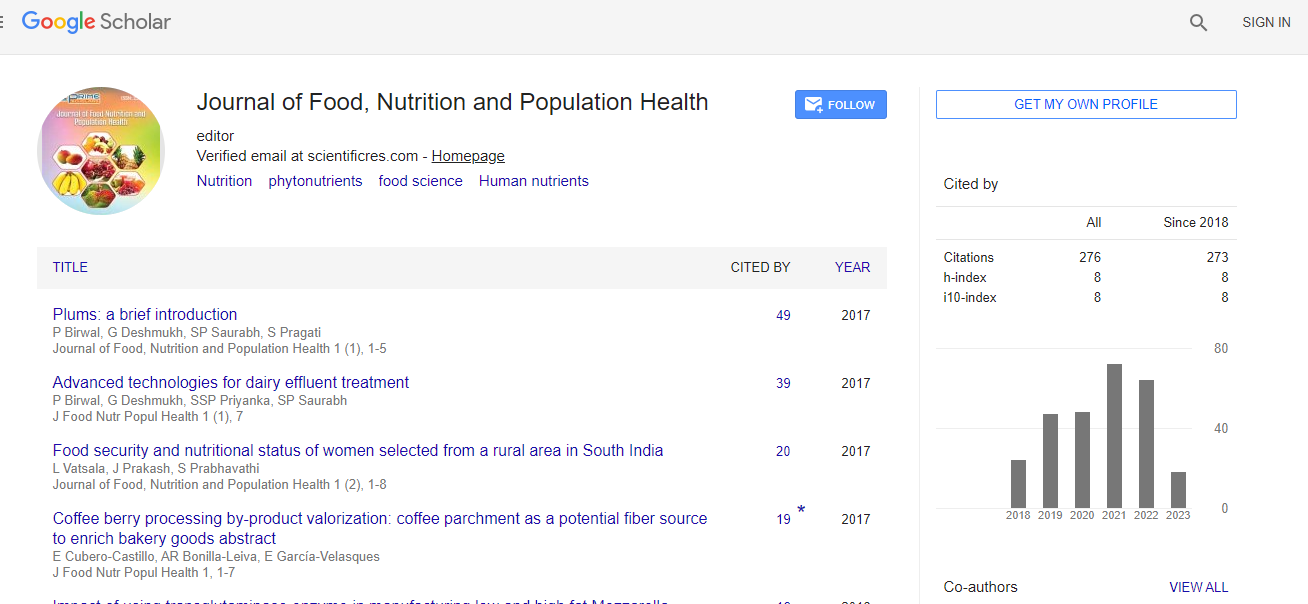Opinion - (2023) Volume 7, Issue 2
Effects of Nutrition Counselling and Unconditional Cash Transfers on Child Growth and Family Food Security in Somalia
Emmanuel Nakua*
Department of Public Health, Kwame Nkrumah University of Science and Technology, Ghana
*Correspondence:
Emmanuel Nakua,
Department of Public Health, Kwame Nkrumah University of Science and Technology,
Ghana,
Email:
Received: 30-May-2023, Manuscript No. ipjfnph-23-16802;
Editor assigned: 01-Jun-2023, Pre QC No. ipjfnph-23-16802 (PQ);
Reviewed: 15-Jun-2023, QC No. ipjfnph-23-16802;
Revised: 20-Jun-2023, Manuscript No. ipjfnph-23-16802 (R);
Published:
27-Jun-2023, DOI: 10.21767/2577-0586.7.02.13
Introduction
Malnourished youth in sub-Saharan Africa account for 33% of
all malnourished children worldwide. About 39% of children
are disabled, 10% are expendable and 25% are underweight.
The pace of food shortages across Somalia is alarming, making
her one of the scariest on the planet. Some 1.2 million children
under the age of five in Somalia are severely malnourished, of
whom 232,000 suffer from severe and severe health problems.
Illness is a major risk for her children under the age of five,
putting them at higher risk of illness and death.
Description
Poor health has been shown to be multifactorial, and implementing
a single program alone may not be sufficient to support
significant reductions in under nutrition. One of the most
commonly involved mediations to address hunger in a supportive
environment is the movement of cash. Is divided into
Money movements can be divided into three main classes: In
Named Cash Move, assets are shown or “tagged” for explicit
purposes, but no context is implemented. A new study on
the impact of money movement shows that money movement
does not always improve nutrition among young people. Only
3 of the 14 studies showed a very positive effect on the weightfor-
age z-score (WAZ, i.e. underweight) and the weight-for-level
z-score (WHZ, i.e., wasting). Nonetheless, some such studies
have been conducted in compassionate settings or in uprooted
people (IDPs). Food security is paramount to ideal development
and is characterized as individuals who have “access to
adequate, protected and nutritious food to lead a healthy and vibrant life.” Various studies show that Money Move programs
have positive food security outcomes, but the evidence for impacts
on child nutrition is mixed and uncertain, especially in
sub-Saharan Africa. To have a greater impact on child nutrition,
there was a range of actions called “cash” that included additional
parts such as feeding and caring for babies and young
children during crises. Counselling primarily aims to promote
and enhance parental information and work on child health
and nutrition. Encouraging breastfeeding, implementing interrelationships
that address mutual care, zinc supplementation,
vitamin A fortification, hand washing, and treating extreme
hunger are recommended as essential measures to reduce
infant malnutrition. An on-going nutrition school counselling
program in Somalia to prevent malnutrition prepares local
workers and advises parent representatives on child care.
Conclusion
Over the past decade, cash transfer programs have become the
norm in Somalia, with resettlement concentrations particularly
in the southern and central parts of the country. The majority
of fund transfer programs are temporary ventures, designed
primarily to meet basic needs in a caring environment, fully
contributing, and aimed at unhappy families. No previous
studies have evaluated the impact of NC orders with or without
cash transfers in Somalia. The purpose of this study was to
assess the impact of NC and UCT on youth development and
family food security in her IDP camps in Somalia. The general
lack of measurable improvements in markers of development
and food security is not surprising given poor financial and fostering
practices.
Citation: Nakua E (2023) Effects of Nutrition Counselling and Unconditional Cash Transfers on Child Growth and Family Food Se�curity in Somalia. J Food Nutr Popul Health. 7:13.
Copyright: © 2023 Nakua E. This is an open-access article distributed under the terms of the Creative Commons Attribution License, which permits unrestricted use, distribution, and reproduction in any medium, provided the original author and source are credited.

